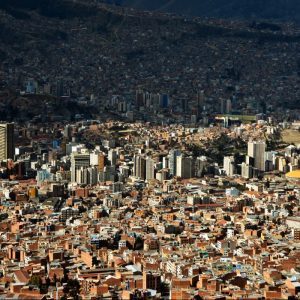The Stream, January 9: Researchers Warn of Ice-Free Arctic Summers
The Global Rundown
Summers without sea ice look more and more likely, according to new research in the Arctic. Air strikes continued outside of Damascus, Syria as government and rebel forces fought for control of a valley that holds the city’s main water supply. A prominent environmental group in Ecuador may be forced to close by the government. France plans to increase cyber security efforts to protect vital infrastructure, including water systems. Floods over the weekend disrupted transportation and killed nearly two dozen people in Thailand, while heavy rain and snow could force more rivers to overflow their banks in California and Nevada.
“If they decide to close us, no doubt about it, we will be reborn, stronger, in greater numbers. This isn’t just about defending nature or land, but the right to participate, the right to work together, the right to protest, the right to speak.” –Esperanza Martinez of Acción Ecológica, a leading environmental organization in Ecuador, on government attempts to force the organization’s dissolution. The group has long been a proponent of water rights, and has recently opposed mining projects in Ecuador. (Guardian)
In context: Explore Circle of Blue’s special report about the water risks of the global mining industry.
By The Numbers
24 air strikes Number on Sunday that targeted a valley outside of Damascus, Syria where the city’s main water supply is located. Supplies from the valley were cut in late December, leaving 4 million people without water access. Reuters
21 people Number killed by floods in southern Thailand over the weekend. Storms in the region also affected rubber plantations and closed airports and train routes. Reuters
40 rivers Number in California and Nevada that are either flooding or close to overflowing due to heavy rain in the region, according to the National Weather Service. Up to 20 centimeters of rain and 2 meters of snow are anticipated to fall in some areas by Tuesday. Reuters
Science, Studies, And Reports
Older, thicker sea ice formed over years in the Arctic now makes up just 3 percent of sea ice in the region, down from 20 percent in the 1980s, according to researchers at NASA. Instead, younger, thinner ice formed during a single season accounts for the vast majority of the Arctic’s ice, making ice-free summers much more likely to occur. Guardian
On The Radar
France plans to increase its efforts to guard against cyberattacks on critical infrastructure including water, electricity, and transportation systems, according to the country’s defense minister. The risk of cyberattacks gained the global spotlight last week when the United States released a report about Russian hacking during the presidential election. Reuters
In context: Learn about the growing cyber risk to water infrastructure as more utilities connect their control systems to the internet.
A news correspondent for Circle of Blue based out of Hawaii. She writes The Stream, Circle of Blue’s daily digest of international water news trends. Her interests include food security, ecology and the Great Lakes.
Contact Codi Kozacek




